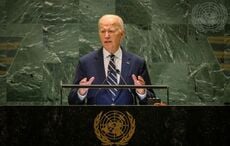World-famous neurologist and best-selling author Oliver Sacks has claimed that renowned playwright Brian Friel borrowed an article he wrote ‘word of word’ in one of his most famous plays.
British-American Sacks is reported as suggesting that Friel is guilty of ‘cryptomnesia’ rather than ‘plagiarism’ according to the Sunday Independent newspaper.
The paper quotes from an article by Sacks for The New York Review of Books where he refers to passages of his work being recreated in Friel’s 1994 play Molly Sweeney.
The play is about a woman who has been blind since she was 10 months old and has her sight restored in her 40s with shattering consequences.
Sacks writes: “Perhaps the term ‘cryptomnesia’ needs to be better known. The very word ‘plagiarism’ is so morally charged, so suggestive of crime and deceit, that it retains a sting even if it is unconscious.”
The report adds that the author then says that Friel’s play Molly Sweeney, first staged in 1994, makes extensive use of material from a 1993 article Sacks had written for The New Yorker, using ‘entire phrases and sentences’.
The Sunday Independent says that in a 1993 article in The New Yorker, titled 'To See But Not See,' Prof Sacks recounted the case of a man in Oklahoma who had his sight restored after a lifetime of blindness. He wrote how the man subsequently had great difficulty in trying to cope with being able to see.
In his current article for The New York Review of Books, Prof Sacks says: “In 1996 when the play was on in New York, I read a review of a new play, Molly Sweeney, by Brian Friel.
“It was, I read, about a massage therapist, born blind, who is given sight by an operation in middle life, but then finds this unprecedented ability to see profoundly confusing.
“I was startled by this, because I myself had written and published in The New Yorker, just three years earlier, the case history of a patient with an exceedingly similar story ‘To See and Not See.'
“When I obtained a copy of Friel’s new play, I was not surprised to find it brilliant and original in conception and style, but I was surprised to find, over and above the thematic similarities, entire phrases and sentences from my own case history.
“I wrote to Friel, and he responded that he had indeed read my piece, and had been much moved by it and the more so as he had feared he was losing his own vision.
“He had also read many other case histories of the restoration of vision. Friel concluded that he must have inadvertently used some phrases from my account, but that this was completely unconscious, and agreed to add to Molly Sweeney an acknowledgment of the sources of his inspiration.”
Professor Sacks also refers to George Harrison’s hit song 'My Sweet Lord' which was legally proven out to have ‘great similarities’ to a song by Ronald Mack called 'He’s So Fine.'
He adds: “When the matter went to trial, the judge found Harrison guilty of plagiarism, but showed psychological insight and sympathy in his summary of the case.
“He found that it was not done deliberately, but it was still an infringement of copyright.”
The paper reports that magazine article also explores the deficiencies of memory and how this can lead to unconscious plagiarism, which Sacks accepts is what happened in the case of the Friel play.




Comments